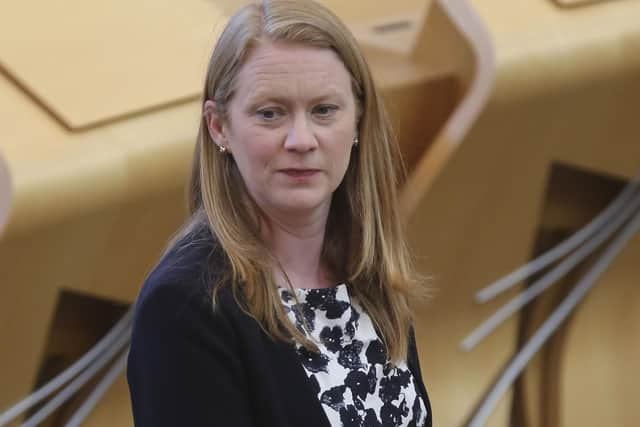Analysis: SQA appeals statement leaves no hope for those hit by Covid-19
The death came a week before she began her Higher assessments.
When they arrived, Jane sat down at her desk, took out her pen and completed the ‘assessment’ under strict exam conditions.


Advertisement
Hide AdAdvertisement
Hide AdHer grief distracted her as she struggled to remember the details of revision materials on topics she was taught in her bedroom during lockdown, impacting the quality of her answers.
She believes she has hit her predicted A grade. Her teacher disagrees and awards her a C.
The teacher does this despite knowing that in normal circumstances Jane would have received an A, but there is no scope for that type of judgement.
Jane is fictional, but her experience won’t be.
In announcing their direct appeals system for the 2021 non-exam exam season, the SQA and the Scottish Government have consigned her to a results’ day of disappointment through no fault of her own.
A key ask of children’s groups was for a ‘no-detriment’ approach to appeals, with no-one at risk from downgrades when challenging their grade.
Ignoring this will see pupils like Jane in an unenviable position of deciding whether to risk an even lower grade and teachers having their professional judgement questioned.
Rather than take into account extenuating circumstances, the SQA’s process will simply re-mark the work produced, compare it to a national standard and either provide a fresh grade or side with the school’s interpretation.
Those who sat their exams despite losing family or significant lost learning are at a further disadvantage.
Advertisement
Hide AdAdvertisement
Hide AdOnly if they missed their exams are they allowed to take more time to sit the non-exam exam, with schools given until September 3 to submit the evidence and provisional grades to the SQA.
But the SQA is explicit – this process cannot be abused for resits or to “delay assessment”, regardless of personal circumstance.
It is hard to see who this may realistically apply to.
By relying on demonstrated rather than inferred attainment, the system has been designed to replicate as close as possible normal exams.
It is a system stacked against learners, pitting teachers against students and removing any grounds for inferred attainment in the forlorn hope of retaining long lost ‘credibility’ in the system.
It is a scandal.
A message from the Editor:
Thank you for reading this article. We're more reliant on your support than ever as the shift in consumer habits brought about by coronavirus impacts our advertisers.
If you haven't already, please consider supporting our trusted, fact-checked journalism by taking out a digital subscription.
Comments
Want to join the conversation? Please or to comment on this article.
